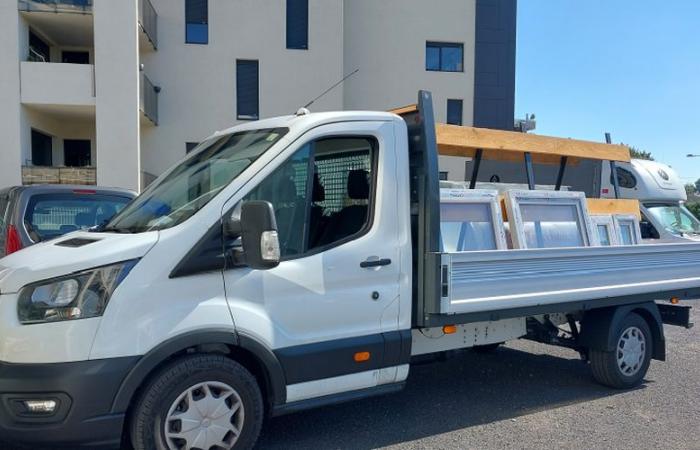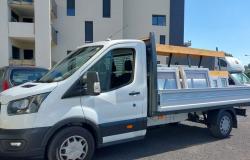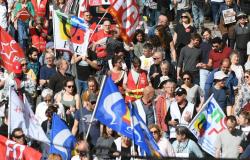
Nearly 5 million euros: this is the market value of this seizure carried out on September 19 by the Montpellier customs brigade at the Fabrègues area. The driver of the van, of Serbian nationality, was carrying out transport between Spain and Germany. Tried on Monday November 25, he was sentenced to two years in prison, where the public prosecutor asked for a sentence of 10 years. The prosecution appealed.
In appearance, it was a flatbed van carrying windows. In reality, the Ford Transit concealed in a cache, under its cargo, 120 kg of cocaine packaged in 103 loaves. Market value: €4,816,000, customs estimated during this record seizure on the A9 motorway, in Fabrègues near Montpellier, on September 19. That day, the local brigade was on patrol when they spotted this utility vehicle registered in Germany, which seemed suspicious to them.
A white powder appears after a drill
The driver, of Serbian nationality, explains that he comes from Spain and is going to Germany to make a delivery. Such a long journey to transport six windows: the customs officers find this strange and decide to search the vehicle. The dog trained to search for narcotics immediately marks at the level of a recess made under the plate, operated by hydraulic cylinders. A drill on the sheet metal plate, and a white powder escapes. The driver was handed over to the judicial police. He is in possession of two phones and €1,000 in cash.
Monday, November 25, following the adjournment of his trial, this father of four children, aged 47, with a clean criminal record, was presented before the Montpellier criminal court for importing, transporting and possessing drugs. In the box, he continues to assert that he was not “not aware” of the presence of cocaine in this van that his employer had entrusted to him. Likewise, he maintained before the investigators that he was unaware of the existence of this cache and its mechanism.
The prosecutor demands ten years in prison
“It’s hard to think that we allow an employee, hired for such a short time, to carry this and travel so many kilometers without him being aware of anything”notes the customs representative who is asking for a fine equivalent to the value of the drugs seized. The prosecutor, Alain Octuvon-Bazile, agrees with this analysis. He also notes that the accused “does not give the unlock code for his phone, nor the name of the company he works for. He appears rather seasoned.” He asks the court to find the defendant guilty and sentence him to ten years in prison and ban from French territory for five years.
Me Jean-Baptiste Mousset, the Serbian driver's lawyer, points out “the exaggeration of the public prosecutor”who asks “the maximum penalty incurred, after having required three minutes.” For the lawyer, on September 19, “the customs officers were very well informed, there was no coincidence.” He pleads the shortcomings of the procedure: “no investigations into phones, highway tickets.” But also, “pollution produced by questioning services”which prevented “take samples from the button (activating the cache, Editor’s note), the cocaine bars, etc.” Hence, “the impossibility of carrying out exculpatory investigations”.
“Modern Slave”
The prosecutor qualifies his client “seasoned” ? “I know few traffickers who, while transporting 120 kg of cocaine, use their personal phone, give their real identity, do not attempt to flee and show no sign of concern during the check, where others sweat and swallow their SIM card!” For the defense lawyer, the accused is a “modern slave”. He asks for his release.
After deliberation, the court chaired by Gilles Maschio pronounced a sentence very far from the requisitions of the public prosecutor: two years in prison with continued detention and a €120,000 customs fine. The ban on French territory, however, is increased to ten years. “The court made a more precise and detailed reading of the file”reacted Me Mousset at the end of the hearing. The prosecution appealed the court's decision the next day.





